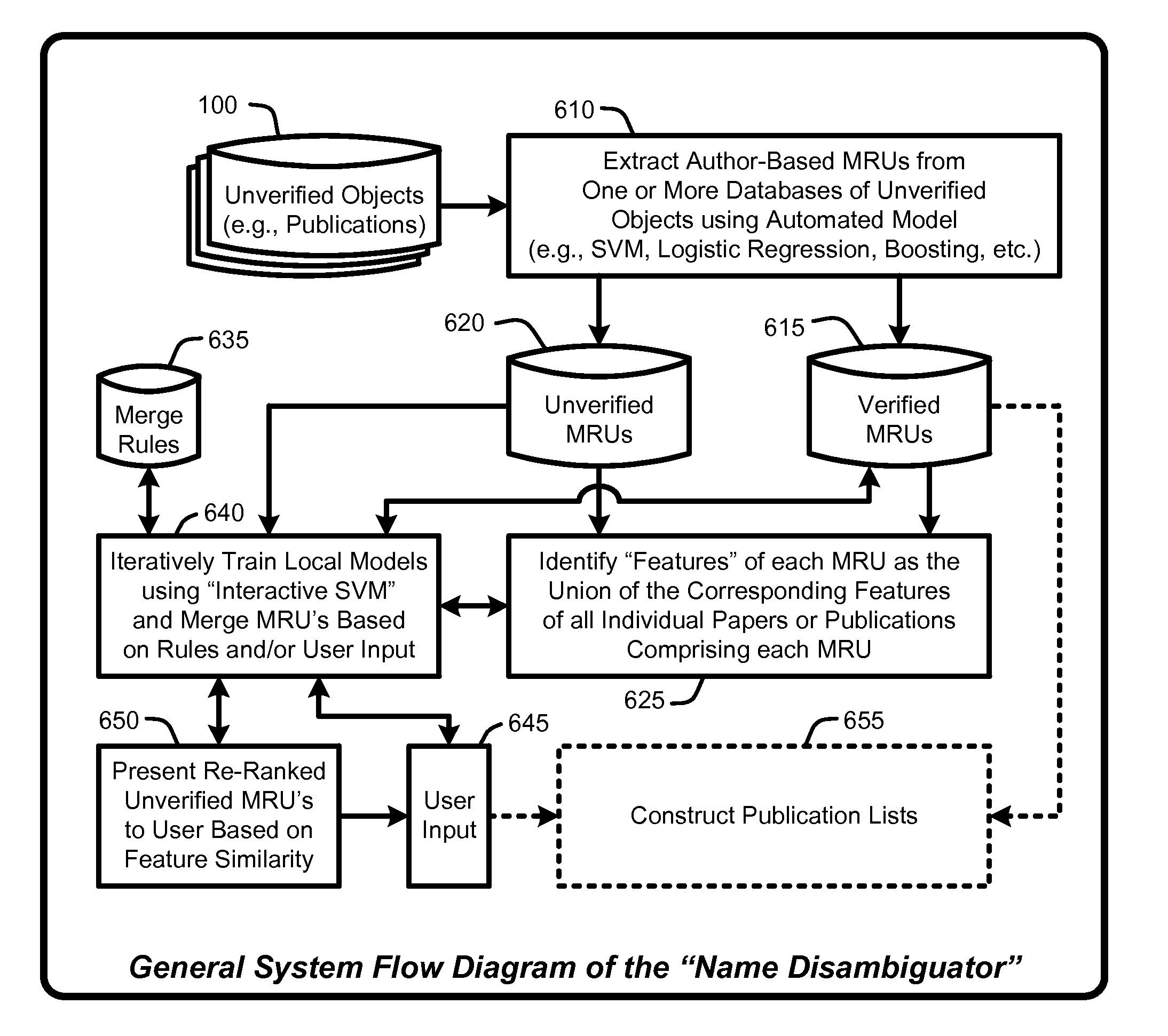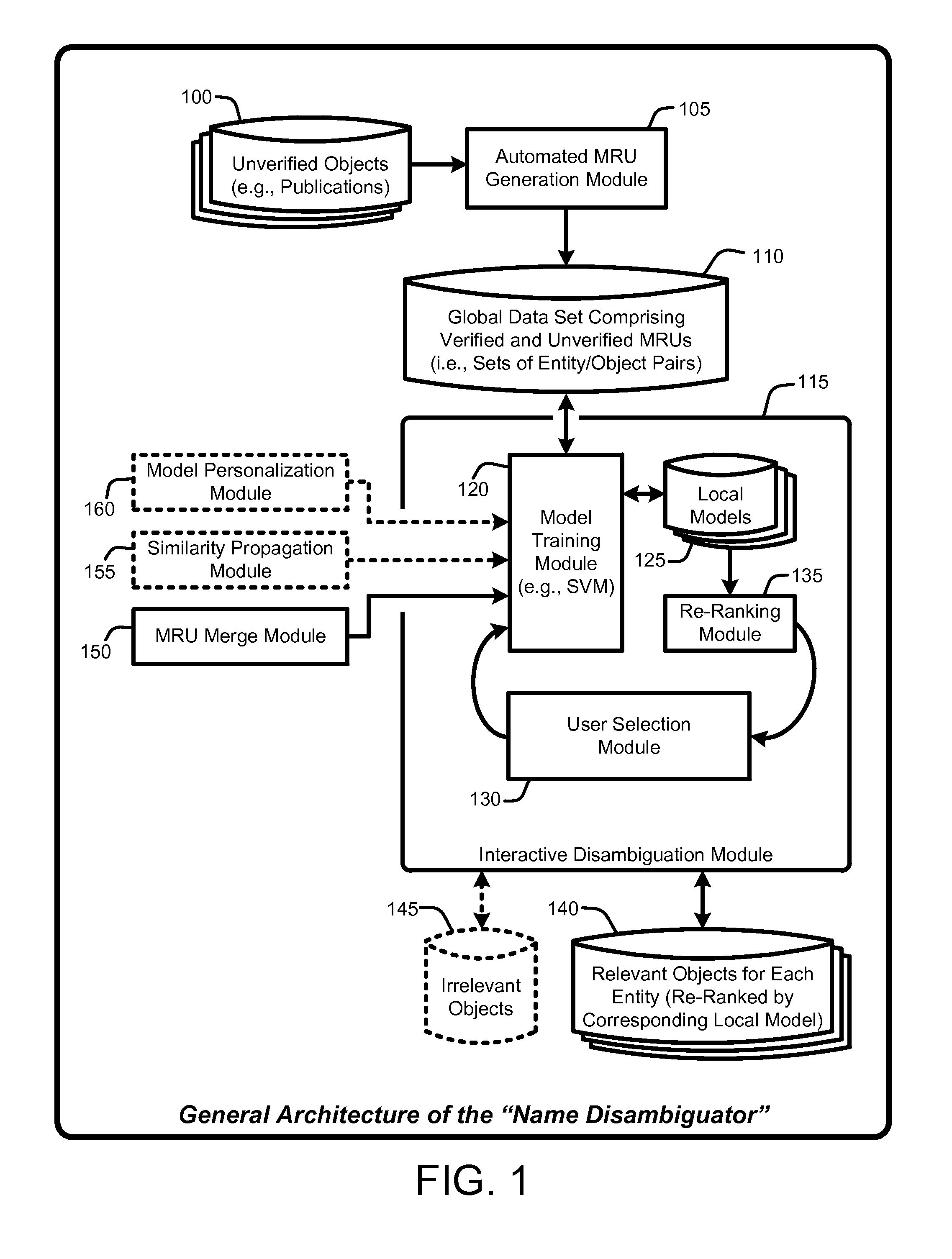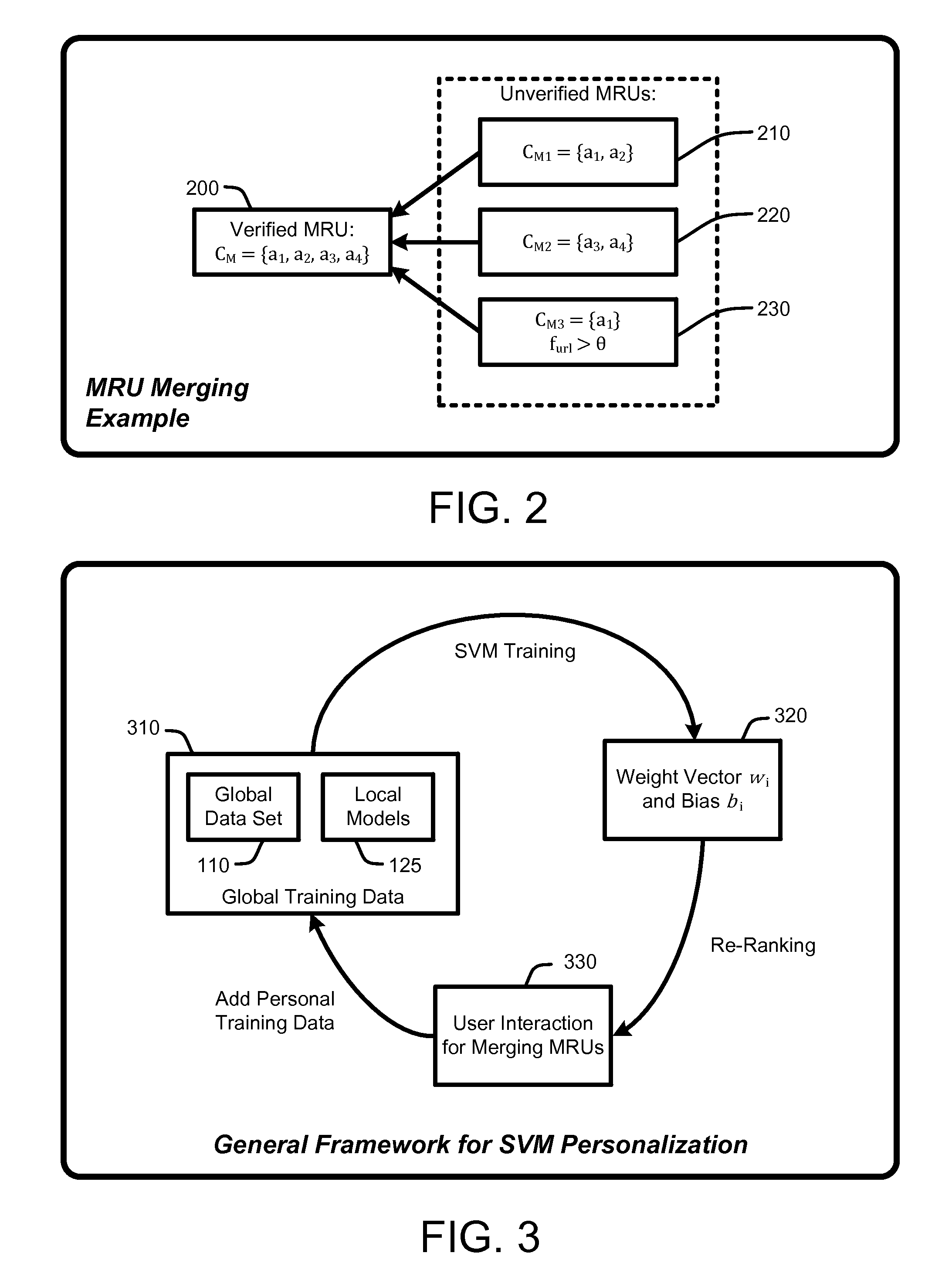Interactive framework for name disambiguation
a name and context technology, applied in the field of name disambiguator, can solve the problems of affecting the quality of entity searches, limiting success in this field, and complicated particular name ambiguity problems, so as to reduce the time and number of user clicks, improve the quality of search results, and maximize the effect of interactive human knowledge and inputs
- Summary
- Abstract
- Description
- Claims
- Application Information
AI Technical Summary
Benefits of technology
Problems solved by technology
Method used
Image
Examples
Embodiment Construction
[0028]In the following description of the embodiments of the claimed subject matter, reference is made to the accompanying drawings, which form a part hereof, and in which is shown by way of illustration specific embodiments in which the claimed subject matter may be practiced. It should be understood that other embodiments may be utilized and structural changes may be made without departing from the scope of the presently claimed subject matter.
[0029]1.0 Introduction:
[0030]In general, a “Name Disambiguator,” as described herein, provides an interactive framework constructed to solve the name disambiguation problem with close to 100% accuracy. Note that for purposes of explanation and example, the following discussion will generally describe the use of various embodiments of the Name Disambiguator framework to implement an interactive system for solving the problem of academic author disambiguation in a manner that allows users to easily create and manage author-based publication li...
PUM
 Login to View More
Login to View More Abstract
Description
Claims
Application Information
 Login to View More
Login to View More - R&D
- Intellectual Property
- Life Sciences
- Materials
- Tech Scout
- Unparalleled Data Quality
- Higher Quality Content
- 60% Fewer Hallucinations
Browse by: Latest US Patents, China's latest patents, Technical Efficacy Thesaurus, Application Domain, Technology Topic, Popular Technical Reports.
© 2025 PatSnap. All rights reserved.Legal|Privacy policy|Modern Slavery Act Transparency Statement|Sitemap|About US| Contact US: help@patsnap.com



